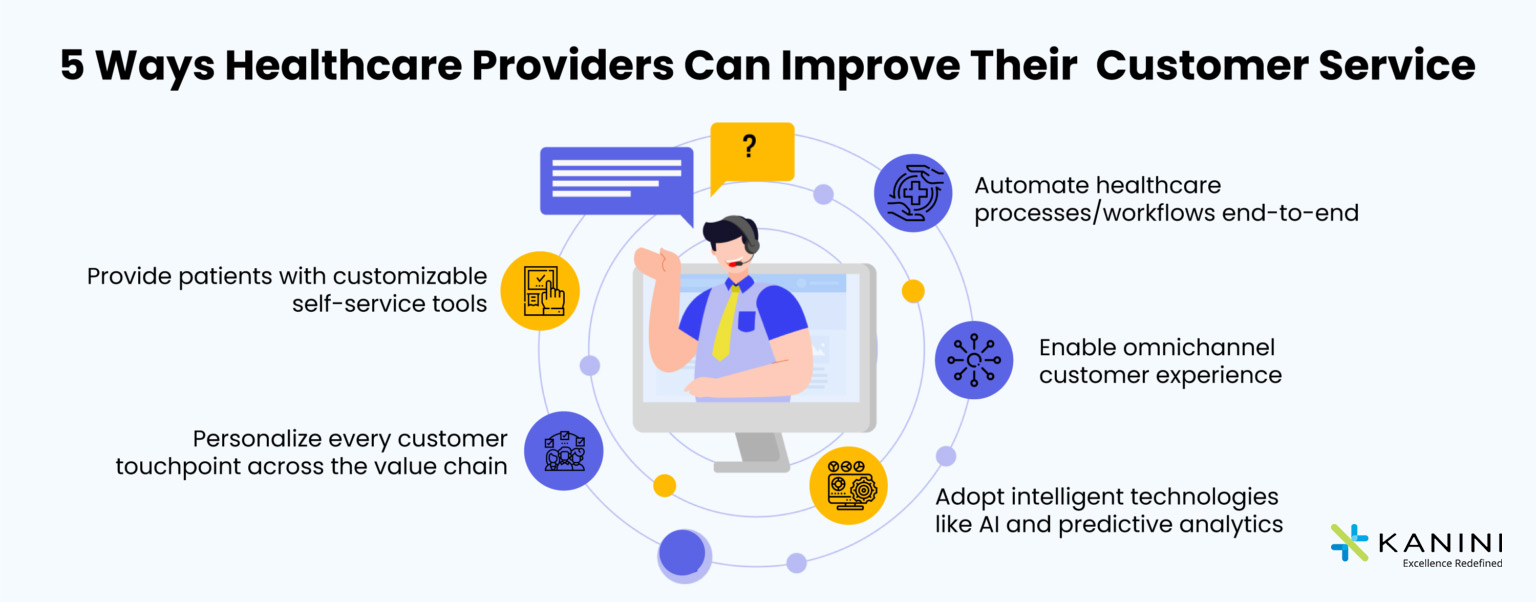Therefore, it is imperative for a healthcare organization to align its operations and principles toward customer-centricity and continuously build on its customer service capabilities. Let us first understand the importance of customer service in healthcare in more detail before we share some pointers on how to improve customer service in a healthcare business.
The Role of Customer Service in Healthcare
● To set expectations for the quality of care
● To enable better, life-saving decisions with timely and accurate information
● To streamline appointment scheduling, check-in, and service delivery
● To improve the quality of services based on patient feedback
● To increase brand loyalty and referrals

How to Improve Customer Service in Healthcare?
1. Provide Patients with Customizable Self-service Tools
2. Personalize at Every Customer Touchpoint
3. Automate Healthcare Processes/Workflows End-to-end
4. Enable Omnichannel Customer Experience
5. Adopt Technologies like AI and Predictive Analytics for Patient 360
Key Takeaway
Author

Sridevi Prekke
Sridevi leads Content Strategy at KANINI and brings over a decade of experience in Marketing & Corporate Communications in the IT/Software industry. She was recognized as one of the “Most Influential Content Marketing Professionals” by the World Marketing Congress & CMO Asia for 2018.
Author

Joshua Smith
Joshua is a process improvement thought leader and digital transformation expert at KANINI. Over the past 15 years, his focus has always been on achieving organizational maturity and enhancing business processes through implementing tools and workflows to drive transformation initiatives. With experience in multiple verticals from – manufacturing to healthcare, Joshua brings a practitioner’s perspective when working on business solutions and goals to allow him to advise and guide on industry and process best practices.








